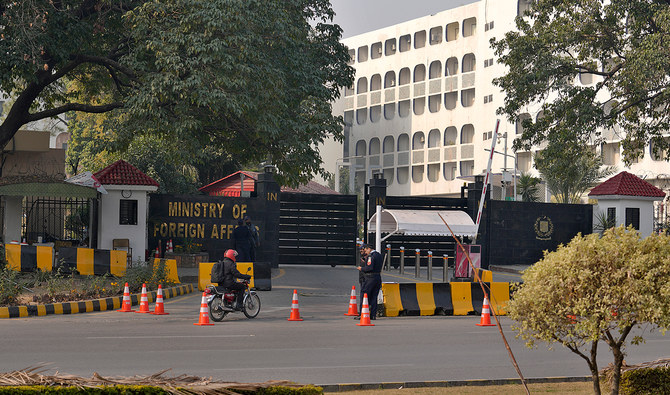ISLAMABAD: The foreign office strongly reacted on Friday to a media report in a British publication about India’s “extra-territorial killings” in Pakistan, calling for a joint international response, as a senior minister in New Delhi vowed to eliminate any individual fleeing across the border after attempting “terrorist activities.”
Pakistan issued the statement only a day after The Guardian detailed how Indian authorities had been targeting people it considered hostile to India in foreign lands. Based on interviews with Pakistani and Indian intelligence operatives, the report said India’s spy agency, Research & Analysis Wing (RAW), was involved in up to 20 assassinations in Pakistan since 2020.
The newspaper noted India had drawn its inspiration from Israel’s Mossad and Russia’s KGB that have been frequently accused of carrying out extrajudicial killings on foreign soil. The Guardian said RAW was directly controlled by the office of Indian Prime Minister Narendra Modi and was widely believed to be behind the murder of a Sikh leader in Canada and a botched attempt on another dissident in the United States last year.
“The Indian network of extra-judicial and extra-territorial killings is now a global phenomenon that needs a coordinated international response,” the foreign office spokesperson, Mumtaz Zahra Baloch, told Arab News in a statement.
She said Pakistan’s foreign secretary Muhammad Syrus Sajjad Qazi had shared evidence linking Indian agents to the killings of two Pakistani nationals in their own country with the local and foreign media in January.
“These cases exposed the increasing sophistication and brazenness of Indian-sponsored terrorist acts inside Pakistan, with striking similarities with the pattern observed in other countries, including Canada and the United States,” she continued, adding such acts of New Delhi clearly violated Pakistan’s sovereignty and constituted a breach of the UN Charter.
“It is critical to bring to justice the perpetrators, facilitators, financiers and sponsors of these extra-judicial and extra-territorial killings,” Baloch said.
“India must be held accountable internationally for its blatant violation of international law,” she added.
Meanwhile, Indian defense minister Rajnath Singh told CNN News18 his country would not hesitate in killing anyone in Pakistan who goes to the other side of the border after attempting to commit “terrorist activities.”
“If they run away to Pakistan, we will enter Pakistan to kill them,” he told the channel in response to The Guardian report.
“India always wants to maintain good relations with its neighboring countries,” he continued. “But if anyone shows India the angry eyes again and again, comes to India and tries to promote terrorist activities, we will not spare them.”
This is the first time India has implicitly admitted its hostile assassination campaign in Pakistan. Earlier this year, when the Pakistani foreign secretary pointed a finger at India operatives behind the killings of its citizens, New Delhi described it as “false and malicious” propaganda.
India has frequently accused Pakistan of harboring militants, though Pakistani officials have always denied the claim.
With input from Reuters
























